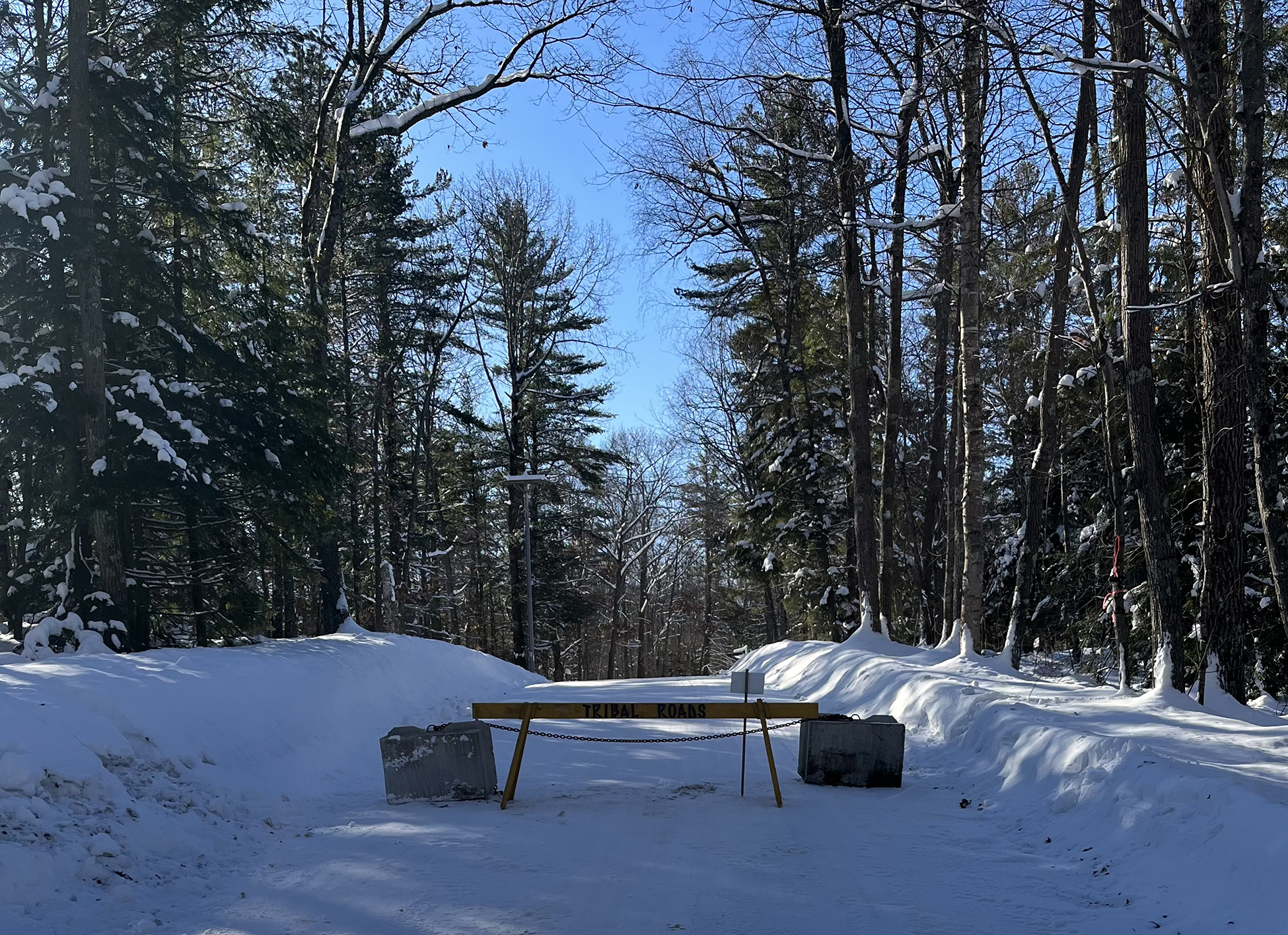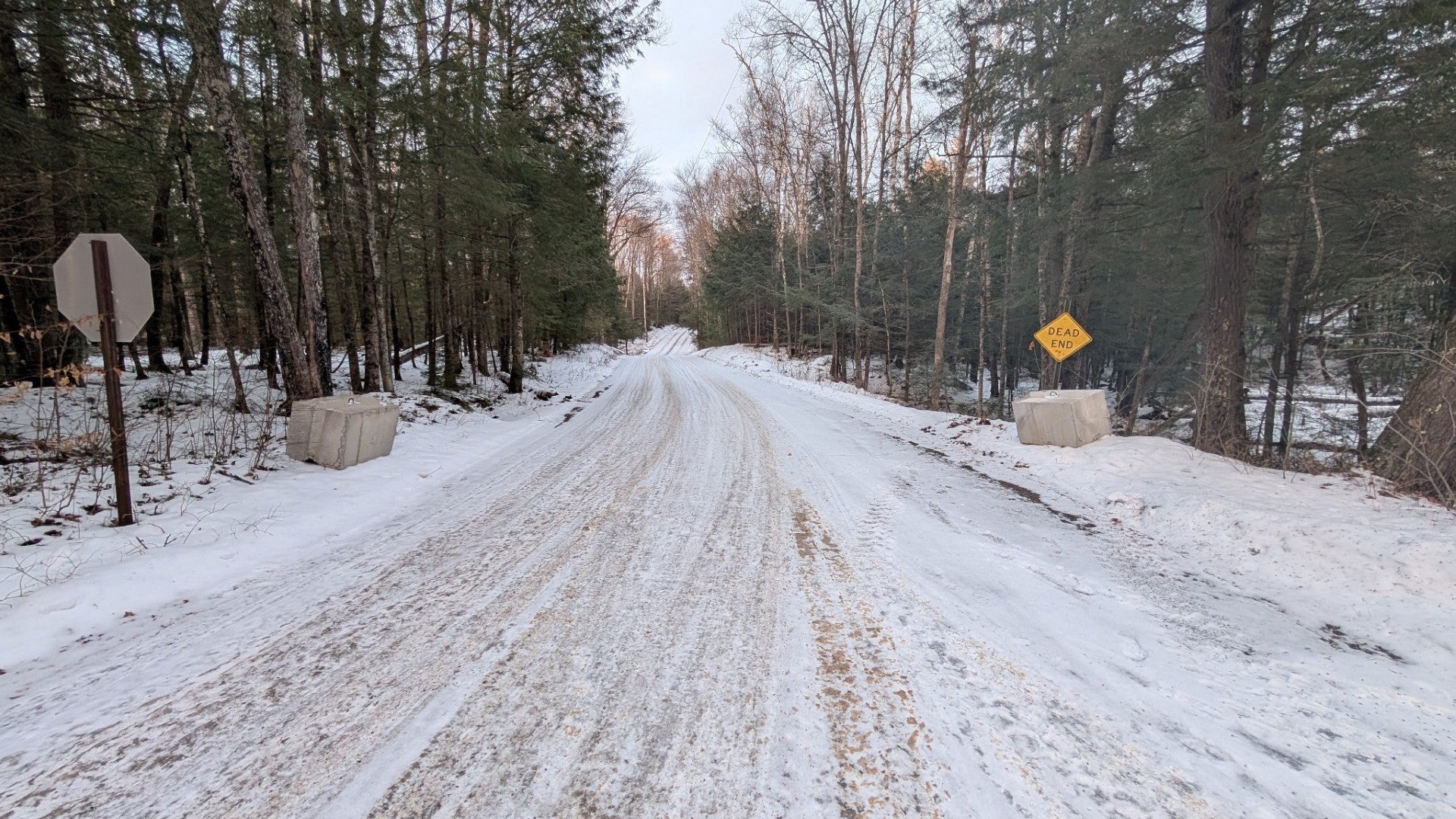A lawsuit aiming to block a northern Wisconsin tribe from barricading four town roads has been dismissed in federal court. But the monthslong road access dispute has spawned at least four other lawsuits, and the town says it’s facing claims seeking more than $6 million in damages.
Last week, the town filed a new lawsuit, this one against the Bureau of Indian of Affairs, as part of the continuing battle over roads serving non-Native properties on tribal land.
The Lac du Flambeau band of Lake Superior Chippewa, Town of Lac du Flambeau and 21 non-tribal landowners have battled in court for months over expired right-of-way easements allowing town access across property held in trust for the tribe by the U.S. government.
Stay informed on the latest news
Sign up for WPR’s email newsletter.
The tribe barricaded four roads that crossed the trust lands from Jan. 31 through March 13. The homeowners sued individual tribal council members March 1, claiming the tribe illegally blocked the roads.
Federal Judge William Conley ruled in favor of the tribe on Tuesday and dismissed the suit, stating the homeowners didn’t identify a viable federal claim.
An attorney representing the impacted homeowners did not respond to a request for comment. The tribe did not respond to a request for comment.
But the legal battles over road access are far from over. In June, the federal government filed a trespass action against the town, alleging it failed to renew easements that had expired years before and even told residents to “not engage in further communication with the (Bureau of Indian Affairs).” That case is ongoing.
In the meantime, the tribe and town have agreed to monthly permits, allowing road access across the trust lands. The initial fee was $60,000 for a total of 90 days. That agreement expired June 12. Since then, the town has paid a monthly fee that has increased each 30 days.
According to the town’s website, First American Title Insurance Company and Chicago Title Insurance Company, which holds policies for the homes impacted by the road dispute, have assisted with at least one month of payments.
On Aug. 7, the town paid the tribe $26,000 to keep the roads open from Aug. 12 through Sept. 12.
The same day the payment was made, the Town of Lac du Flambeau filed a federal lawsuit against the U.S. Bureau of Indian Affairs, alleging it violated federal law when it approved the band’s request to remove the roads in question from the National Tribal Transportation Facility Inventory, of NTTFI.
The NTTFI designation for the town roads was a pillar of the earlier suit brought by homeowners, who claimed because the roads were in the inventory, federal law required them to remain open to the public.
The town’s lawsuit alleges the tribe “clandestinely applied to have the roads removed from the NTTFI in an attempt to do nothing more than thwart the Property Owners’ Suit.”
A bureau spokesperson said the agency could not comment on pending litigation.
The removal of the roads from the inventory “has decreased property values” within the town, the suit alleges, “and will prevent the town from providing critical services to its residents.”
The town claims it has received 12 notices of potential lawsuits, “which, in total, seek over $6,000,000.00 in damages.” Two separate lawsuits have been brought by homeowners in Vilas County Circuit Court against the town, its board chair and the tribe’s treasurer. They
According to the town’s federal lawsuit, two title companies that have provided title insurance for the homes impacted by the tribe’s barricades are “considering to cease writing title insurance policies for properties like those impacted by the tribal road closures in this matter.”
“The lack of title insurance on the properties at issue would make the properties untouchable, thus wiping out a significant amount of property value, drastically decreasing assessed values and the corresponding tax value for the Town, and further limiting public travel and access to properties within Plaintiff’s jurisdiction.”
Attorneys representing the town did not respond to a request for comment.
University of Wisconsin-Madison Professor of Law and Director of the Great Lakes Indian Law Center Richard Monette said the raft of lawsuits in the easement dispute was “very foreseeable” and it may take an act of Congress to get the various parties to the table.
“This case is giving rise to the complex nuances of the political relationship between the United States and the tribes,” Monette said. “That’s why this is a matter for the political branches, not for the courts.”
Wisconsin Public Radio, © Copyright 2025, Board of Regents of the University of Wisconsin System and Wisconsin Educational Communications Board.


